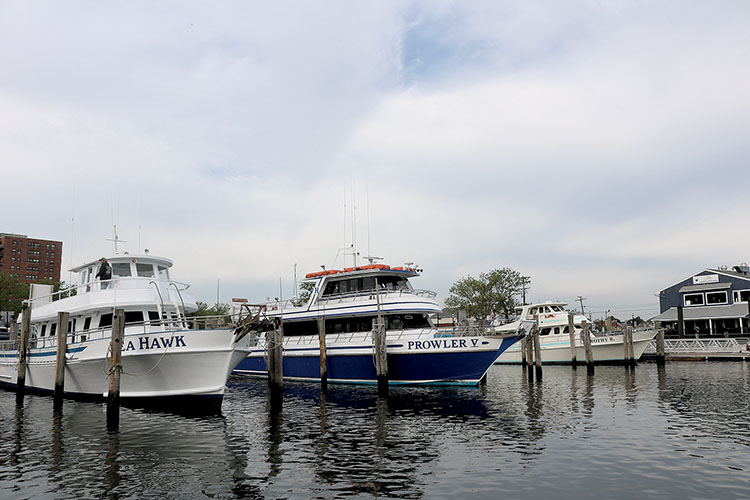By Jay Cook |
Efforts to compromise on what New Jersey representatives believe are draconian recreational fishing regulations were sunk last week, meaning the summer flounder season could potentially be shut down in coming months.
A vote by the Atlantic States Marine Fisheries Commission (ASMFC) on May 22 denied the state’s proposal for changes to three tiers of regulations. They also found New Jersey to be noncompliant.
For greater New Jersey waters, the state had proposed an 18-inch minimum, three-fish limit and a 104-day season for the summer flounder season, a 24 percent cut from 2016. That differs from the ASMFC’s Addendum XXVIII decision in February of a 19-inch minimum, three-fish limit and a 128-day season, which made for a 33 percent reduction.
“We’re disappointed by the actions of ASMFC’s Summer Flounder, Scup and Black Sea Bass Committee,” said Bob Martin, commissioner of the New Jersey Department of Environmental Protection (NJDEP), in a statement on May 22. “New Jersey firmly believes that we have passed regulations that meet the conservation equivalency of the Commission’s proposed quota limits.”
Despite New Jersey not falling in line with the regional regulations, the summer flounder season still opened on May 25 and will end on Sept. 5.
On May 18, Martin approved the 18-inch minimum, three-fish limit and 104-day season for New Jersey. In the Delaware Bay and its tributaries, there is a 17-inch minimum, three-fish limit and 104-day season. For shore fishing on Island Beach State Park, there is a 16-inch minimum, two-fish limit and 104-day season as well.
“There was no support by other board members for the New Jersey proposal,” said Tina Berger, spokeswoman for the ASMFC.
In February, the ASMFC voted to approve Option 5 of Addendum XXVIII, which was in response to findings that the summer flounder stocks were close to being unsustainably low.
“Because (summer flounder) was in an overfishing status, the states and the federal government had to take action to end overfishing immediately,” Berger said.
Berger also added that the ASMFC board unanimously found New Jersey to be non-compliant. If the state doesn’t administer the board-approved regulations – 19-inch minimum, three-fish limit and 128-day season – a letter will be sent to the Secretaries of Commerce and the Interior.

fishing regulations, some fear the summer flounder season may be shut down.
A conference call set for June 1 at 9:30 a.m. for the ASMFC’s Interstate Fisheries Management Policy will consider a recommendation to find New Jersey non-compliant.
If that department and the federal offices also find New Jersey to be non-compliant, Berger said, after a 30-day window “a moratorium for fishing of that fish species in that state’s waters” could be implemented.
New Jersey’s main concern with the ASMFC guidelines were that the number of summer flounder throwbacks would increase due to the 19-inch limit. The state believes that practice is ultimately connected to more fish deaths.
“There’s simply no way we can believe that is responsible management,” said Adam Nowalsky, a former charter boat captain, and one of three New Jersey commissioners on the ASMCF.
Through its proposed plan, the state believes that lowering the size limit by one inch and shortening the season by 24 days would lessen the burden on recreational anglers and keep the summer flounder stocks healthy.
Also tied into its proposal was a major education outreach program aimed at informing recreational salt water anglers – those who fish from head boats, charter boats, in the ocean surf and also shop at bait and tackle shops.
Through the FishSmart program lead by the National Oceanic and Atmospheric Administration (NOAA) and guidelines from TakeMeFishing.org, the state laid out a plan to distribute brochures and videos to anglers across the state.
It also called for the creation of 30-second radio spot PSA’s, New Jersey-based videos showing proper catch-and-release techniques, and blasting out information via social media.
Martin said he looks forward to working with NOAA in efforts to create a more responsible fishing culture. In turn, he said, that would “help protect the stock without devastating a multi-billion-dollar industry here in New Jersey.”
Though for those who are unsure about the 2017 summer flounder season, Nowalsky said recreational anglers have to become more educated about the situation.
In the meantime, he said, “I encourage people to go out and have a good time and enjoy what they can for as long as they can.”
This article was first published in the June 1-June 8, 2017 print edition of The Two River Times.














